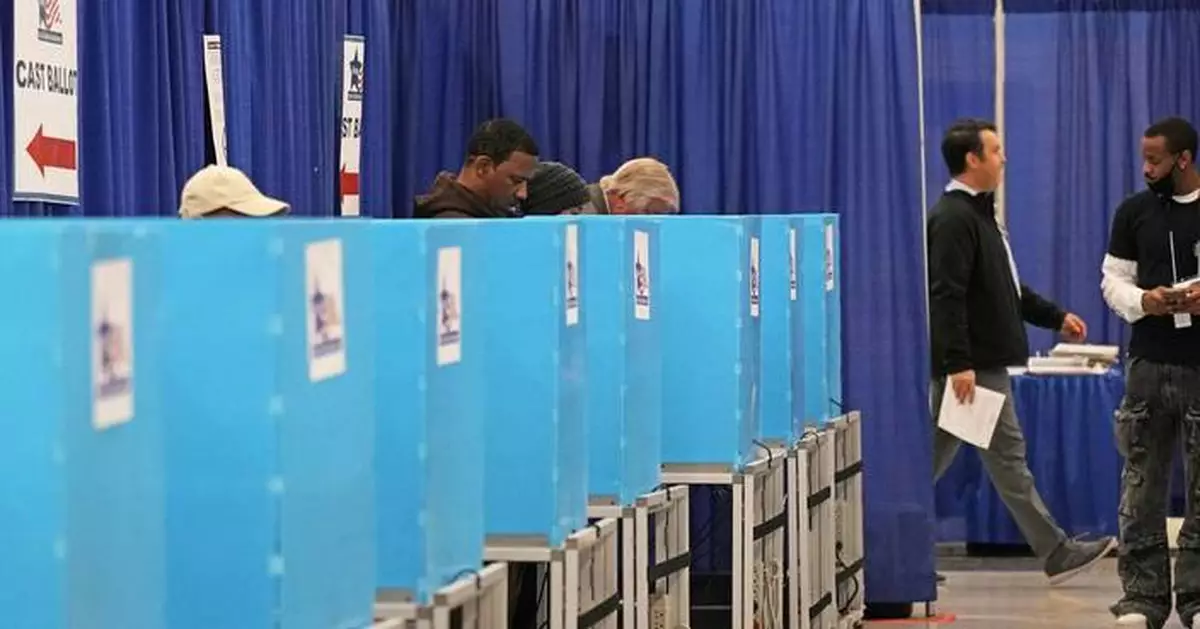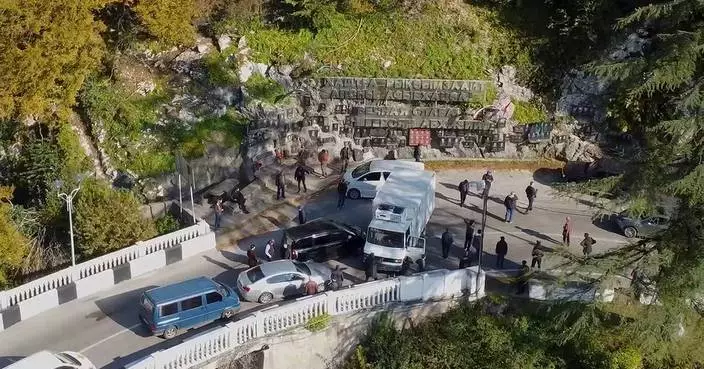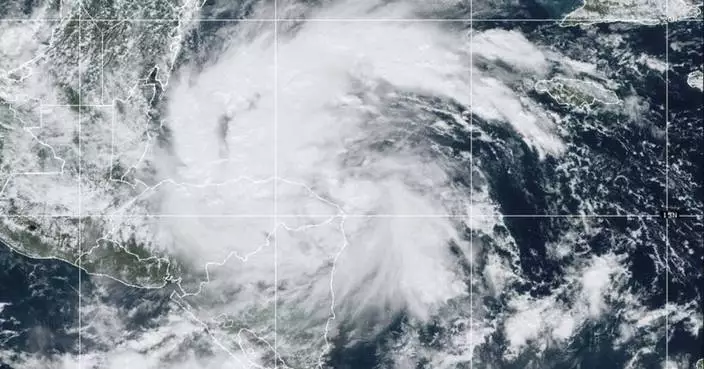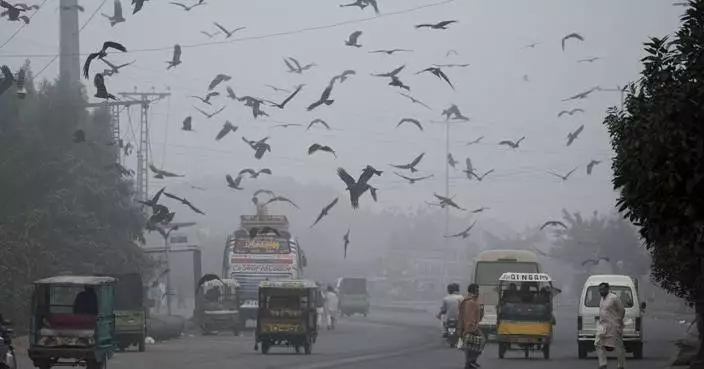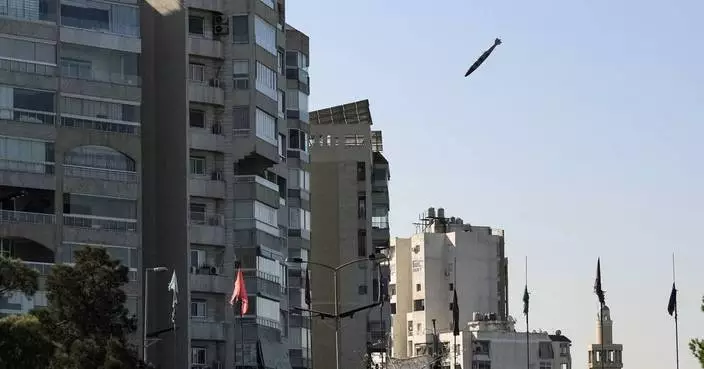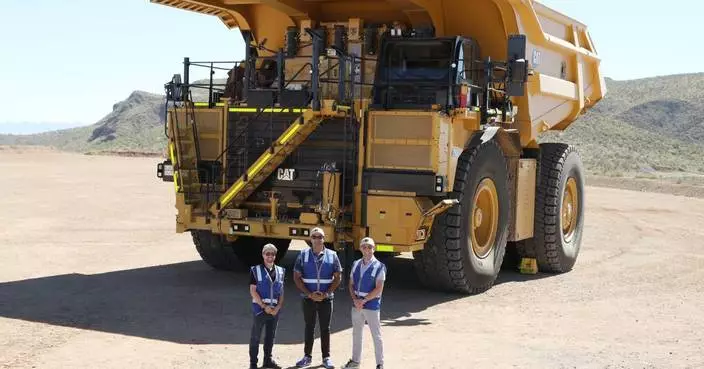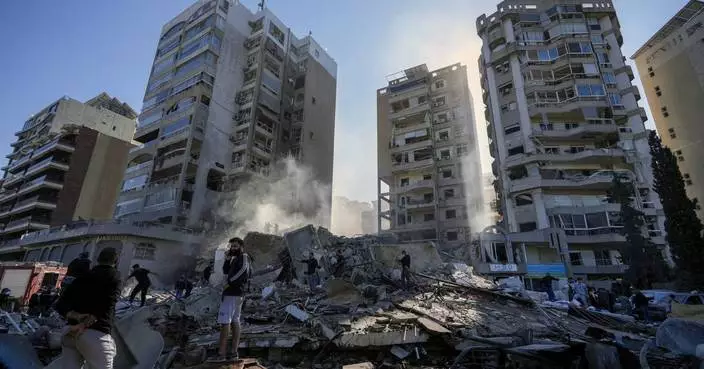WASHINGTON (AP) — The nation's deep partisan divisions extend to trust in the vote tallies for this year's election, as a new poll finds that Republicans are much more skeptical than Democrats that ballots will be counted accurately.
Voters generally show more distrust toward nationwide voting results compared to the tallies done by their own local election offices, according to the survey from The Associated Press-NORC Center for Public Affairs Research.
About half of Republican registered voters have “a great deal” or “quite a bit” of trust that the vote will be accurately counted by their local election officials and around 4 in 10 say the same about the vote count in their state, but only around one-quarter have at least “quite a bit” of trust in the nationwide count.
Republicans voters' overall level of trust in all three, however, is lower than it is among Democratic voters. Roughly three-quarters of Democrats say they have at least “quite a bit” of confidence that votes will be counted accurately nationwide, in their state or by their local election officials.
This year’s election marks the first presidential race since former President Donald Trump began a campaign of lies about a stolen 2020 election — a narrative that has undermined public confidence in election results among a wide swath of conservative voters, despite no evidence of widespread fraud.
Election experts have warned that Trump may be laying the groundwork to once again challenge the election if he loses.
David Farrington, a 78-year-old conservative in Fort Worth, Texas, said he distrusts mail-in ballots and ballot drop boxes, both common targets for claims of voter fraud and election conspiracies attempting to sow distrust in election results.
“It’s not the vote count that I’m worried about," Farrington said. “I have every faith in all the precincts and their ability to count the ballots that are there. But the ballots — we don’t know if they’re legitimate or not.”
Conversely, Ruth Edwards, a 28-year-old kindergarten teacher in Tampa, Florida, said she has “never seen evidence that elections are rigged.”
“It’s just people who are upset about their candidate losing who are now claiming it’s rigged with no evidence,” said Edwards, a Democrat. “It’s ridiculous.”
Voters overall are more likely to believe that votes in the 2024 presidential election will be counted accurately by their local election officials or in their state than nationwide, according to the poll. About 6 in 10 voters have “a great deal” or “quite a bit” of confidence that votes in the 2024 presidential election will be counted accurately by their local election officials or in their state, while about half say this about votes counted nationwide.
About one-quarter in each case have “a moderate amount” of confidence. About 3 in 10 say they have “only a little” or no confidence in the nationwide count, while fewer say that about the tally in their state or by local officials.
Drew Inman, a 31-year-old Republican working in law enforcement in New Jersey, said he is skeptical that votes will be counted accurately at all levels, but especially in counties outside his own.
“I definitely trust my vote to be counted at a local level more than I trust the national vote count," he said. "... When you go national, there’s a lot more people involved and that can create corruption.”
While ballots can include races for federal offices such as president or Congress, the U.S. does not run national elections as other countries do. All elections are run by the states and administered by local election offices in thousands of townships, cities and counties.
Election officials have recognized that many skeptical voters tend to point to other jurisdictions with false claims of fraud. Some groups have tried to counter this perception by emphasizing that elections in every state are run at the local level.
“What is difficult is when we have national elections, oftentimes people will maybe throw election professionals under the bus from another state, and that is not helpful,” said Tammy Patrick, a former election official now with the National Association of Election Officials.
Older voters have more faith in the vote count at all levels than younger voters, including the count conducted by local election officials. About half of 18- to 29-year-old voters have at least “quite a bit” of confidence that votes will be counted accurately in their state or by their local election officials, compared to around 7 in 10 voters ages 60 and older.
The gap is smaller for the nationwide vote count, though: About 4 in 10 18- to 29-year-old voters have at least “quite a bit” of confidence, compared to about half of voters ages 60 and older.
Bill Sanchez, a 29-year-old criminal defense attorney in Monroe County, Pennsylvania, said older voters have been watching and participating in the election process for longer, giving them more time to build trust.
“Younger voters have less experience voting and have spent a lot of their lives surrounded by this kind of misinformation that we’re seeing more and more of,” Sanchez said. "... It just sets the base for younger voters to be more distrustful.”
About 6 in 10 Republicans say people voting who are not eligible is a major problem in U.S. elections, compared to 2 in 10 Democrats. Democrats and Republicans differ most sharply over whether mail ballots that are returned via the U.S. Postal Service or a drop box will be counted accurately. About 6 in 10 Democrats are “extremely” or “very confident” that mail ballots that are returned by these methods will be counted accurately, compared to around 1 in 10 Republicans.
Democrats, meanwhile, are much more concerned about voter suppression than Republicans. About half of Democrats say voter suppression is a major problem, compared to about one-third of Republicans
And about 4 in 10 voters are concerned about other countries tampering with U.S. voting systems or election results, which is down slightly from when the question was last asked in February 2020. This is something that independent voters are at least slightly more likely to be worried about than Democrats or Republicans.
Sanchez, the attorney from Pennsylvania, said he is more concerned about voter suppression than widespread fraud or ballots being miscounted and called for the expansion of early voting and mail ballots to “make voting as accessible as possible.” He also worries about the potential that false claims of voter fraud could incite violence and unrest, and said he hopes election officials' attempts to inform voters ahead of the election will help.
“There’s a lot of misinformation and disinformation about election security from bad faith actors who are trying to build distrust and take advantage of the fact that people don’t always understand everything about the process," Sanchez said. "And when we don’t understand things, we end up fearing it."
Fernando reported from Chicago. Associated Press writer Christina A. Cassidy in Atlanta contributed to this report.
The poll of 1,072 adults was conducted Oct. 11-14, 2024, using a sample drawn from NORC’s probability-based AmeriSpeak Panel, which is designed to be representative of the U.S. population. The margin of sampling error for registered voters is plus or minus 4.2 percentage points.
The Associated Press receives support from several private foundations to enhance its explanatory coverage of elections and democracy. See more about AP’s democracy initiative here. The AP is solely responsible for all content.
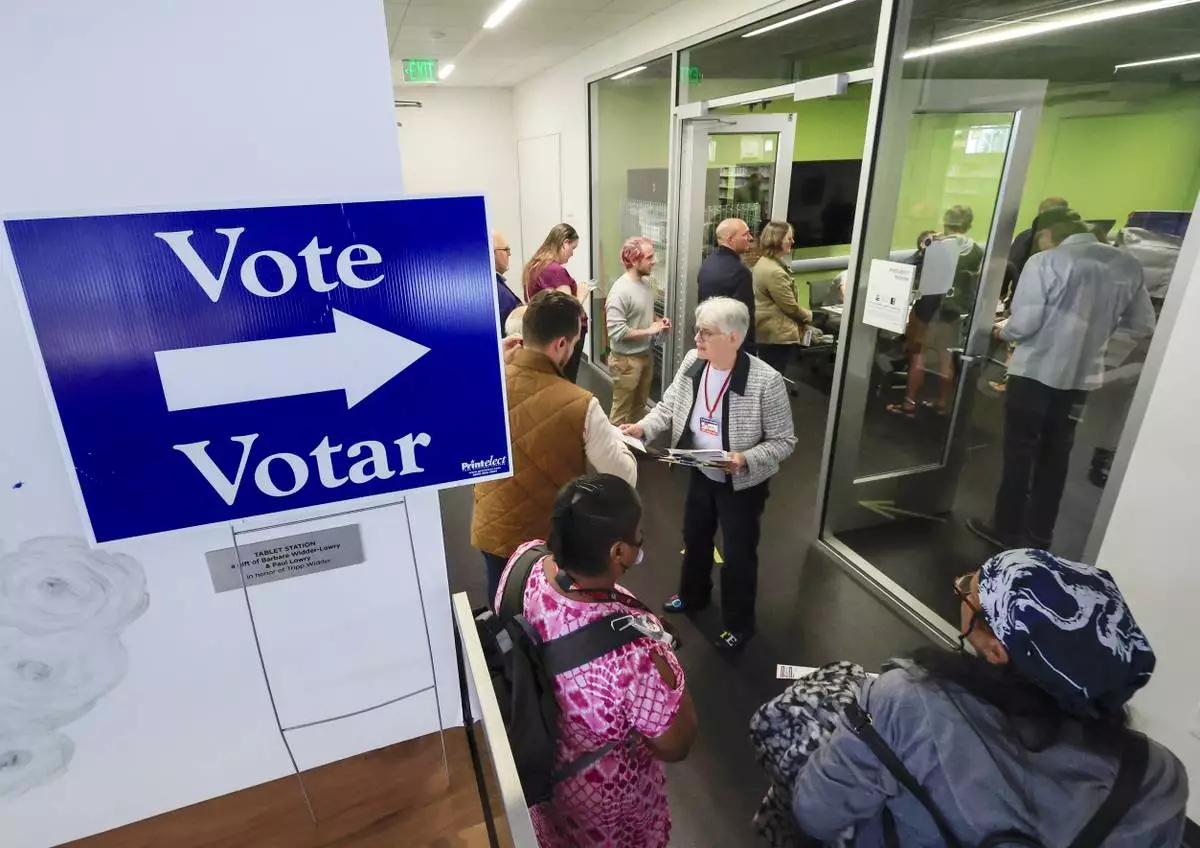
People lineup to vote on the first day of Wisconsin's in-person absentee voting at the Madison Public Library in Madison, Wisc., Tuesday, Oct. 22, 2024. (AP Photo/John Hart, Wisconsin State Journal)
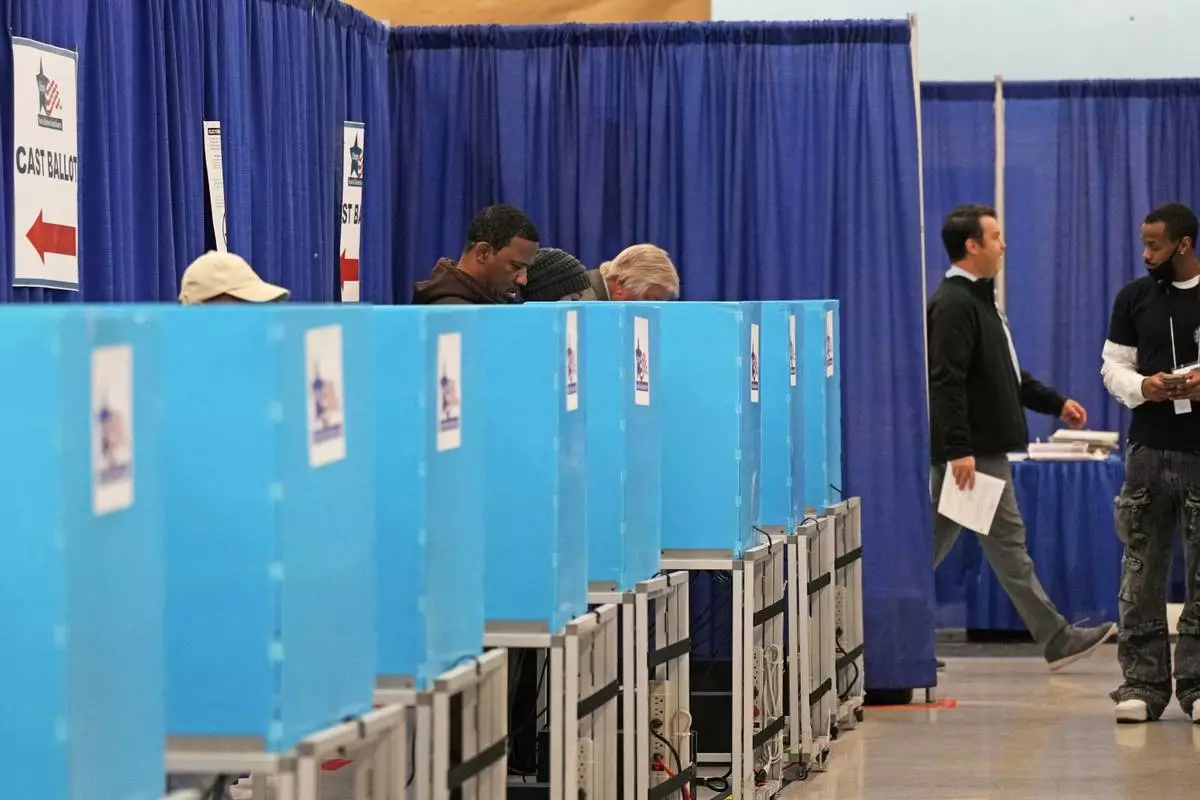
Voters cast ballots at the Chicago Early Voting Loop Supersite in Chicago, Thursday, Oct. 24, 2024. (AP Photo/Nam Y. Huh)
BAKU, Azerbaijan (AP) — Good or bad, the United Nations climate negotiations process itself became the focus of the international talks that aim to curb warming from coal, oil and natural gas.
Environmental advocates released reports Friday decrying fossil fuel industry influence at these climate talks in Baku, Azerbaijan, called COP29. At the same time, a letter signed by a former United Nations Secretary-General and ex-top climate negotiators called for dramatic reform. And the conference's chief negotiator said current talks — aimed at striking a multi-hundred billion dollar deal on financing a transition to clean energy and adapting to climate change — were going too slowly.
All that put the focus on process — not results.
“We consider COP29 as a litmus test for the global climate architecture," conference lead negotiator Yalchin Rafiyev said at a Friday news conference.
A letter signed by former U.N. chief Ban Ki-Moon, former U.N. climate secretary Christiana Figueres and former Ireland President Mary Robinson called for “a fundamental overhaul of the COP."
"We need a shift from negotiation to implementation,” it said.
Two of the signees — Figueres and Johan Rockstrom, director of the Potsdam Institute for Climate Impact Research — said the letter was being badly misinterpreted as criticism of the climate talks. They said the letter was intended to show support for the process, which they said has worked and just needs to shift into a new mode.
Instead of spending so much effort negotiating new deals in annual conferences that can attract 70,000 people, the process should be smaller more frequent and aimed at putting what was already agreed upon into action, Rockstrom said.
“Its about strengthening the COP," Rockstrom said. “It's about recognizing we’ve accomplished so much that we have what need. ... We really need to get serious about delivery."
Climate Analytics CEO Bill Hare said he had issues with some of the suggestions in the letter and personally considers the COP process broken. His analysis this week showed that after the 2015 Paris agreement projected future warming dropped, but in the past three years warming projections — based on negotiations, promises and policies — for the future have stayed the same or even gone up slightly.
An analysis from the Kick Big Polluters Out coalition said Friday that the official attendance list of the talks featured at least 1,770 people connected to the fossil fuel interests.
Catherine Abreu, director of the International Climate Politics Hub, suggested that there should be a “firewall” between fossil fuel lobbyists, U.N. climate bodies and negotiators from countries. “We know over 1700 fossil fuel lobbyists are here at COP29. That is not acceptable,” she said.
U.S. Vice President Al Gore, who on Friday presented new data on carbon pollution sites, said “it’s unfortunate that the fossil fuel industry and the petrostates have seized control of the COP process to an unhealthy degree."
For his part, COP29 negotiator Rafiyev defended the process.
“The process has already delivered, the COP process so far by reducing projected warming, delivering finance to those in need," Rafiev said. “It’s better than any alternative.”
One key benefit of the U.N. climate talks process is it is the only place where victim small island nations have an equal seat at the table, United Nations Environment Programme Executive Director Inger Andersen told The Associated Press. But the process has its limits because “the rules of the game are set by member states,” she said.
At a press conference with small island nations, chair Cedric Schuster said the negotiating bloc felt the need to remind everyone else why the talks matter.
“We’re here to defend the Paris agreement,” Schuster said, referring to the climate deal in 2015 to limit warming to 1.5 degrees Celsius (2.7 Fahrenheit) above pre-industrial times. “We’re concerned that countries are forgetting that protecting the world’s most vulnerable is at the core of this framework.”
Also at the talks Friday, new data from an organization co-founded by Gore that combines observations and artificial intelligence found that cities in Asia and the United States emit the most heat-trapping gas, with Shanghai the most polluting.
Using observations and artificial intelligence, Climate Trace quantifies heat-trapping carbon dioxide, methane and nitrous oxide, as well as other traditional air pollutants worldwide, including for the first time in more than 9,000 urban areas.
Seven states or provinces spew more than 1 billion metric tons of greenhouse gases, all of them in China, except Texas, which ranks sixth.
Earth's total carbon dioxide and methane pollution grew 0.7% to 61.2 billion metric tons with the short-lived but extra potent methane rising 0.2%. The figures are higher than other datasets “because we have such comprehensive coverage and we have observed more emissions in more sectors than are typically available,” said Gavin McCormick, Climate Trace's co-founder.
Shanghai's 256 million metric tons of greenhouse gases led all cities and exceeded those from the nations of Colombia or Norway. Tokyo's 250 million metric tons would rank in the top 40 of nations if it were a country, while New York City's 160 million metric tons and Houston's 150 million metric tons would be in the top 50 of countrywide emissions. Seoul, South Korea, ranks fifth among cities at 142 million metric tons.
“One of the sites in the Permian Basin in Texas is by far the No. 1 worst polluting site in the entire world,” Gore said. “And maybe I shouldn’t have been surprised by that, but I think of how dirty some of these sites are in Russia and China and so forth. But Permian Basin is putting them all in the shade.”
China, India, Iran, Indonesia and Russia had the biggest increases in emissions from 2022 to 2023, while Venezuela, Japan, Germany, the United Kingdom and the United States had the biggest decreases in pollution.
The dataset — maintained by scientists and analysts from various groups — also looked at traditional pollutants such as carbon monoxide, volatile organic compounds, ammonia, sulfur dioxide and other chemicals associated with dirty air. Burning fossil fuels releases both types of pollution, Gore said.
This “represents the single biggest health threat facing humanity,” Gore said.
The Associated Press’ climate and environmental coverage receives financial support from multiple private foundations. AP is solely responsible for all content. Find AP’s standards for working with philanthropies, a list of supporters and funded coverage areas at AP.org.
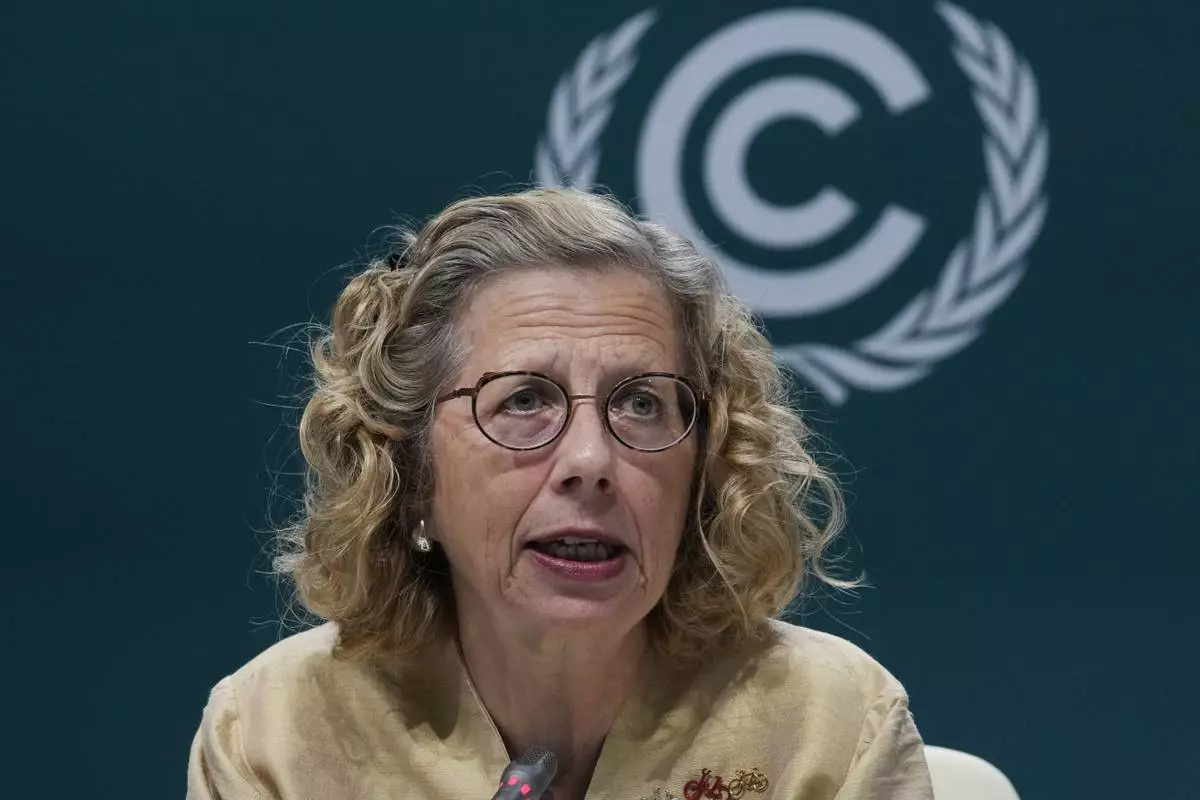
Inger Andersen, Executive Director UNEP, speaks during a session at the COP29 U.N. Climate Summit, Friday, Nov. 15, 2024, in Baku, Azerbaijan. (AP Photo/Rafiq Maqbool)
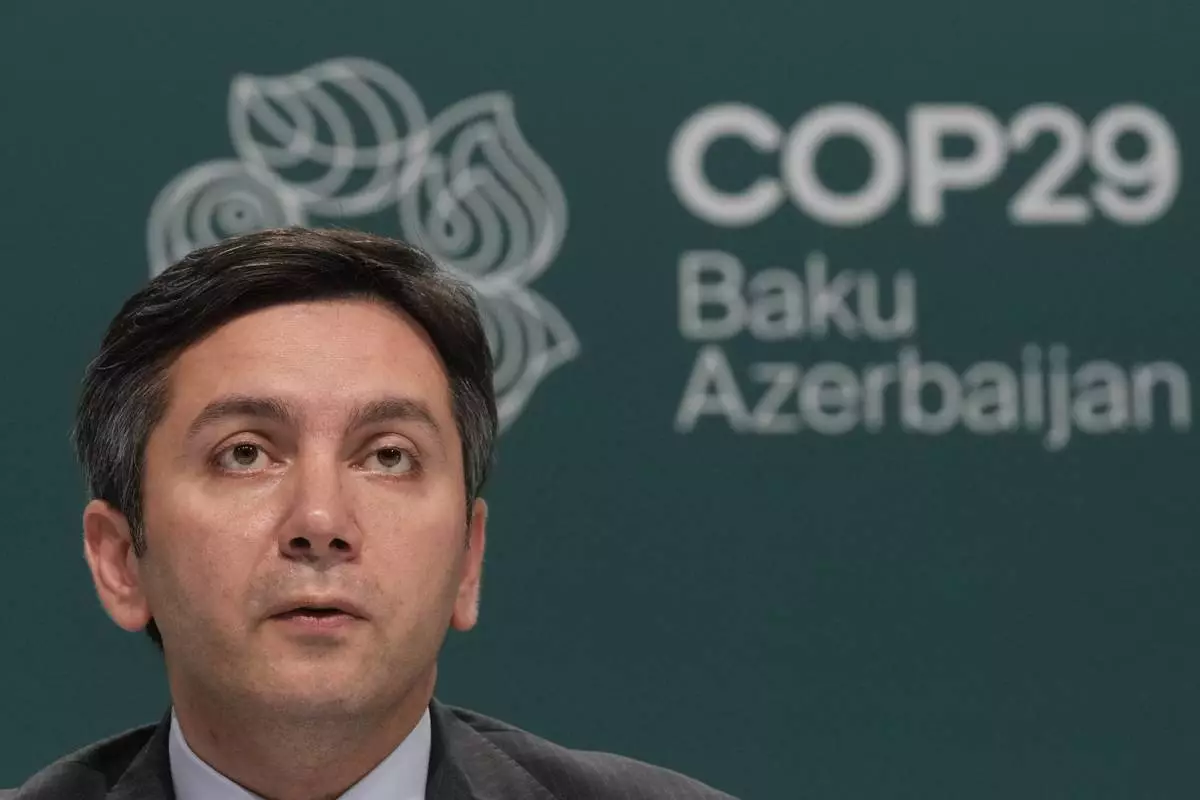
Yalchin Rafiyev, Azerbaijan's COP29 lead negotiator, speaks during a news conference at the COP29 U.N. Climate Summit, Friday, Nov. 15, 2024, in Baku, Azerbaijan. (AP Photo/Rafiq Maqbool)
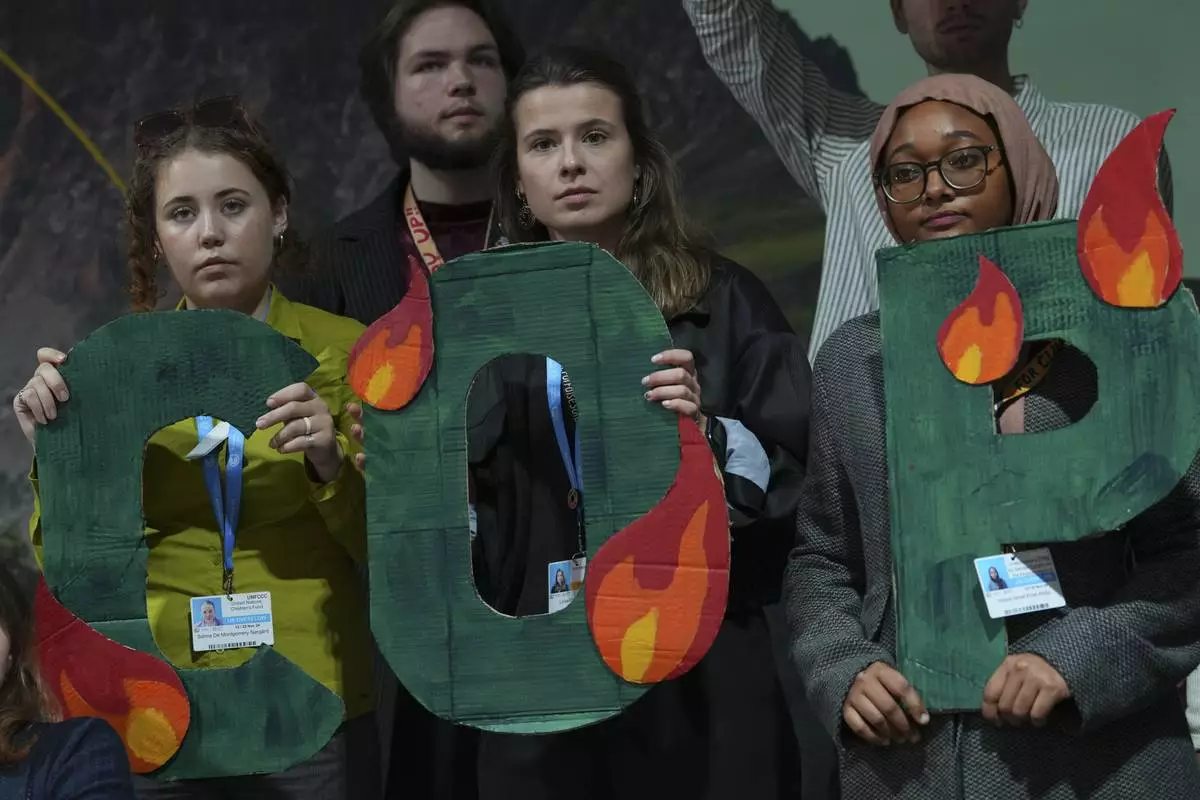
Activist Luisa Neubauer, of Germany, center, participates in a demonstration against fossil fuels at the COP29 U.N. Climate Summit, Friday, Nov. 15, 2024, in Baku, Azerbaijan. (AP Photo/Peter Dejong)
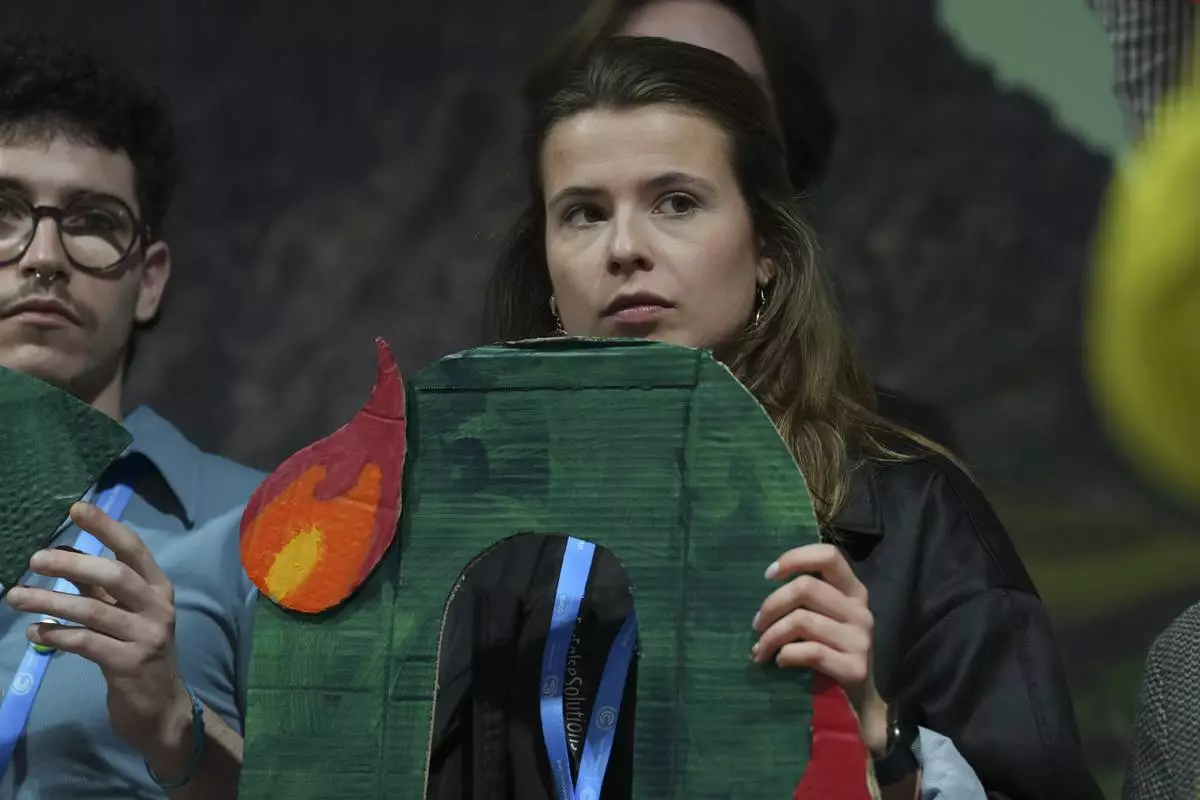
Activist Luisa Neubauer, of Germany, participates in a demonstration against fossil fuels at the COP29 U.N. Climate Summit, Friday, Nov. 15, 2024, in Baku, Azerbaijan. (AP Photo/Peter Dejong)
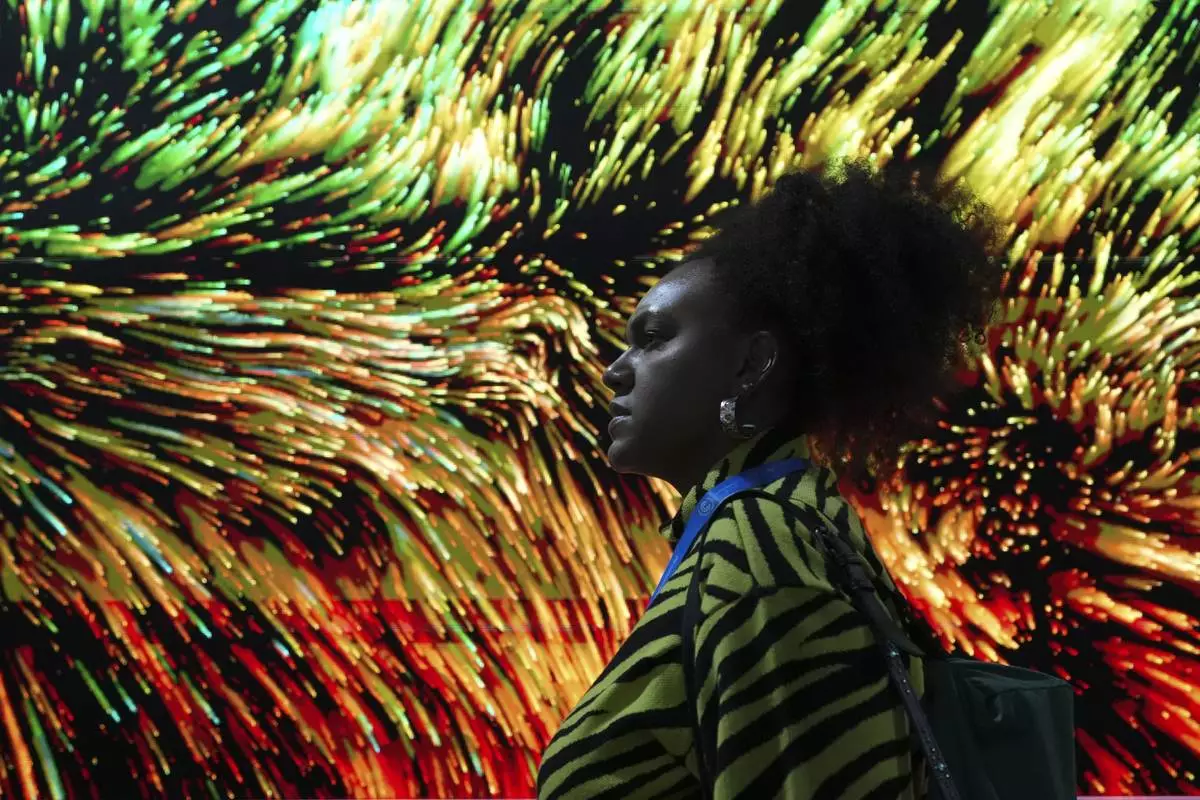
A person walks through the Turkey Pavilion during the COP29 U.N. Climate Summit, Friday, Nov. 15, 2024, in Baku, Azerbaijan. (AP Photo/Sergei Grits)
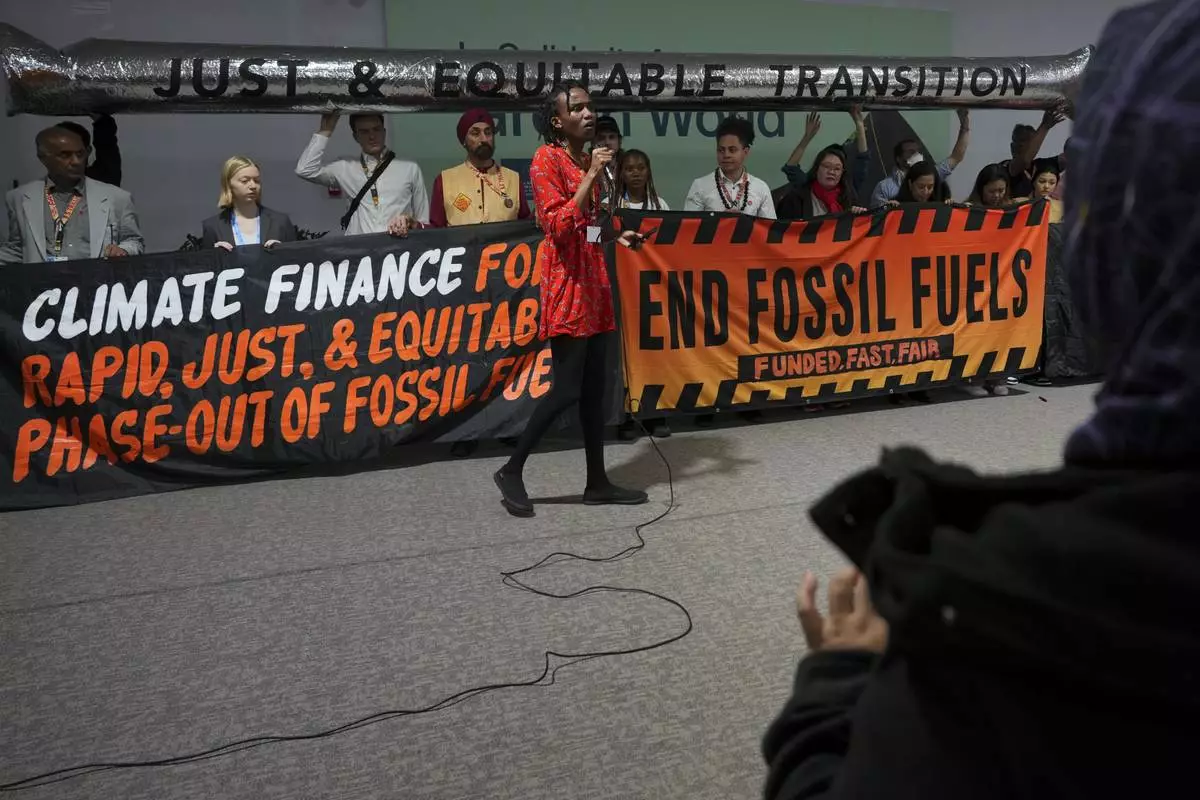
Eric Njuguna, of Kenya, participates in a demonstration against fossil fuels at the COP29 U.N. Climate Summit, Friday, Nov. 15, 2024, in Baku, Azerbaijan. (AP Photo/Peter Dejong)
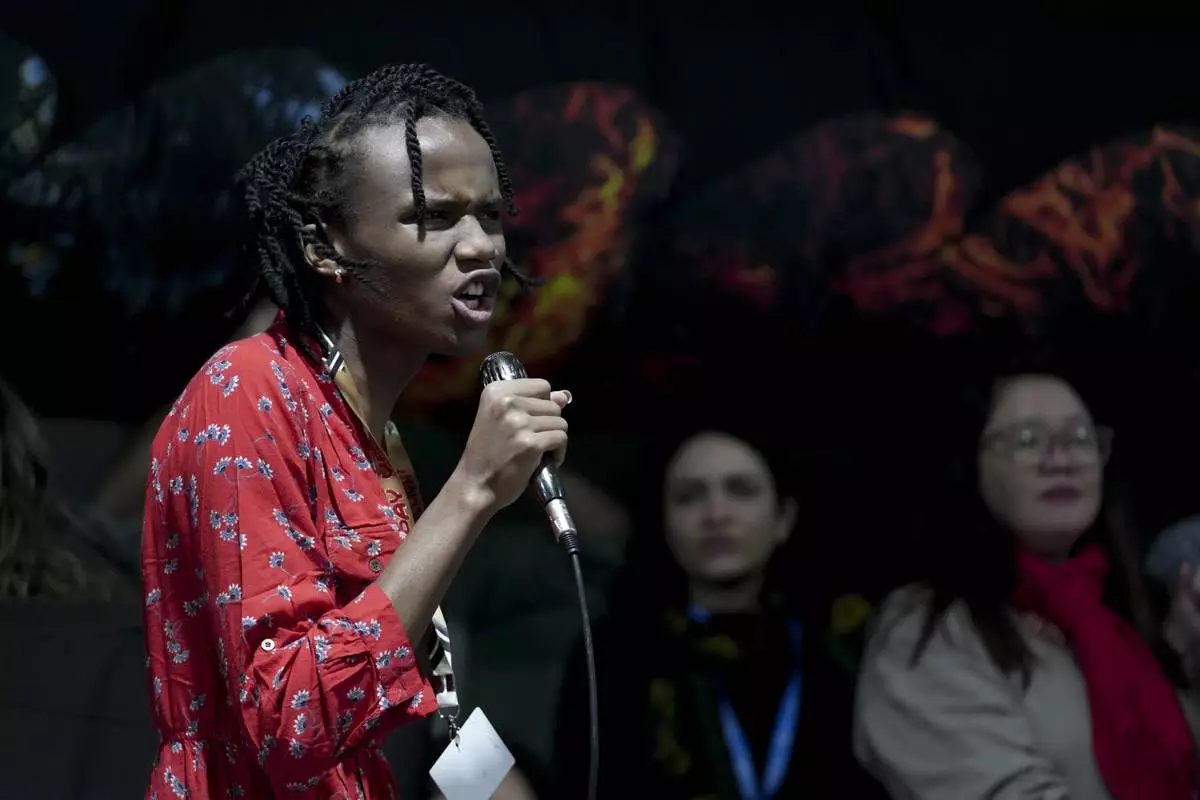
Eric Njuguna, of Kenya, participates in a demonstration against fossil fuels called weed out the snakes at the COP29 U.N. Climate Summit, Friday, Nov. 15, 2024, in Baku, Azerbaijan. (AP Photo/Joshua A. Bickel)
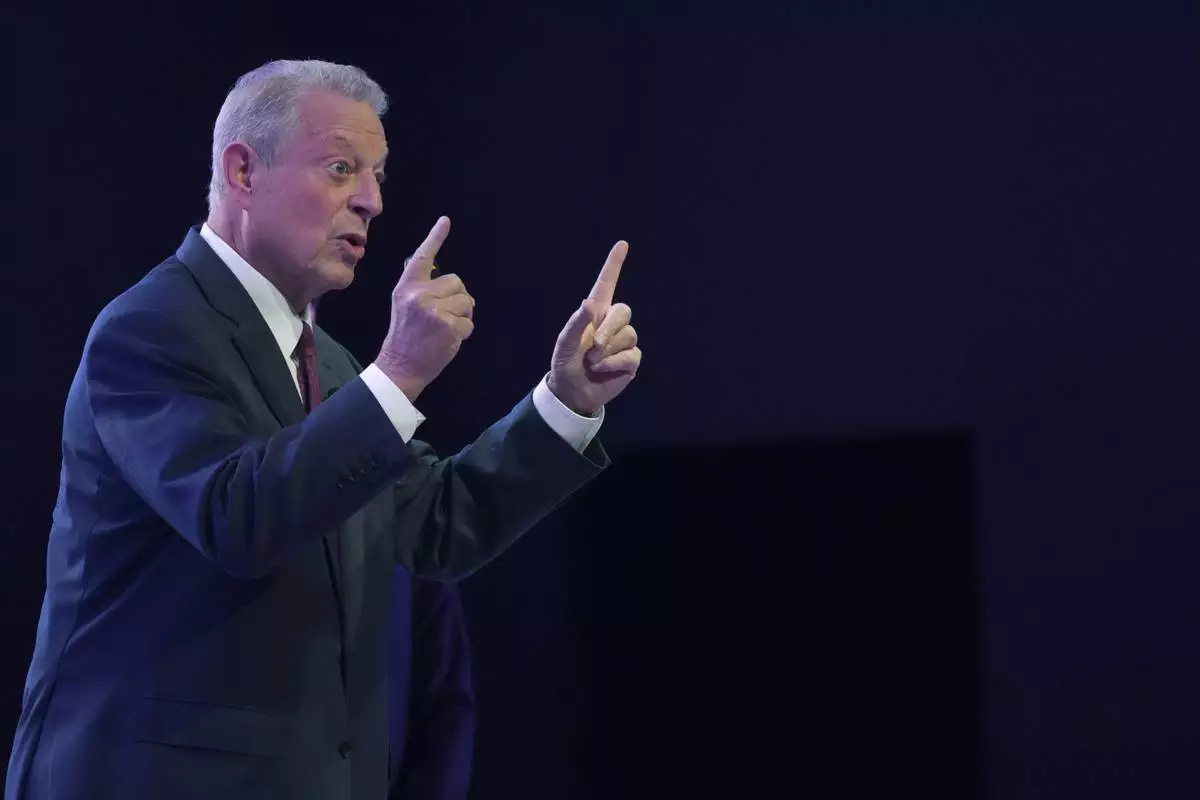
Former Vice President Al Gore speaks during a session on Climate Trace, a database that monitors emissions, at the COP29 U.N. Climate Summit, Friday, Nov. 15, 2024, in Baku, Azerbaijan. (AP Photo/Sergei Grits)
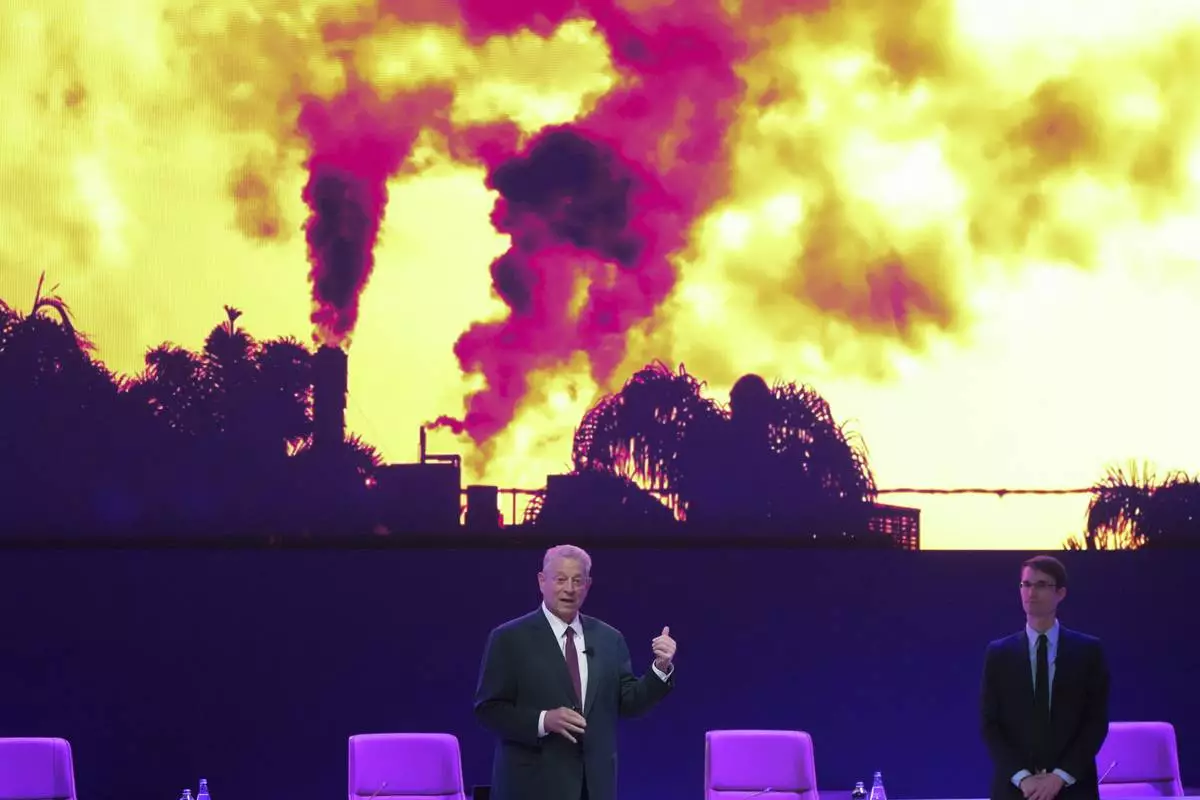
Former Vice President Al Gore speaks during a session on Climate Trace, a database that monitors emissions, at the COP29 U.N. Climate Summit, Friday, Nov. 15, 2024, in Baku, Azerbaijan. (AP Photo/Sergei Grits)




